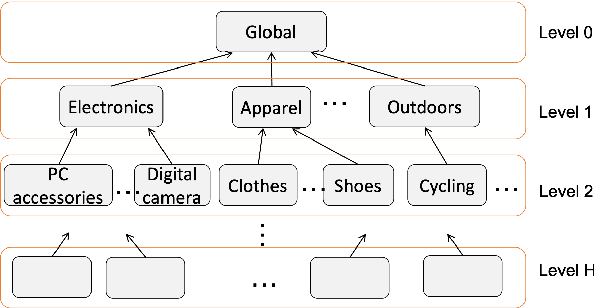Gyorgy Szarvas
A Probabilistic Framework for Learning Domain Specific Hierarchical Word Embeddings
Oct 20, 2019



Abstract:The meaning of a word often varies depending on its usage in different domains. The standard word embedding models struggle to represent this variation, as they learn a single global representation for a word. We propose a method to learn domain-specific word embeddings, from text organized into hierarchical domains, such as reviews in an e-commerce website, where products follow a taxonomy. Our structured probabilistic model allows vector representations for the same word to drift away from each other for distant domains in the taxonomy, to accommodate its domain-specific meanings. By learning sets of domain-specific word representations jointly, our model can leverage domain relationships, and it scales well with the number of domains. Using large real-world review datasets, we demonstrate the effectiveness of our model compared to state-of-the-art approaches, in learning domain-specific word embeddings that are both intuitive to humans and benefit downstream NLP tasks.
 Add to Chrome
Add to Chrome Add to Firefox
Add to Firefox Add to Edge
Add to Edge